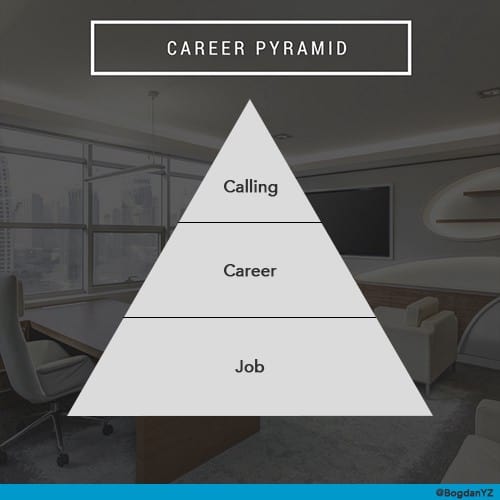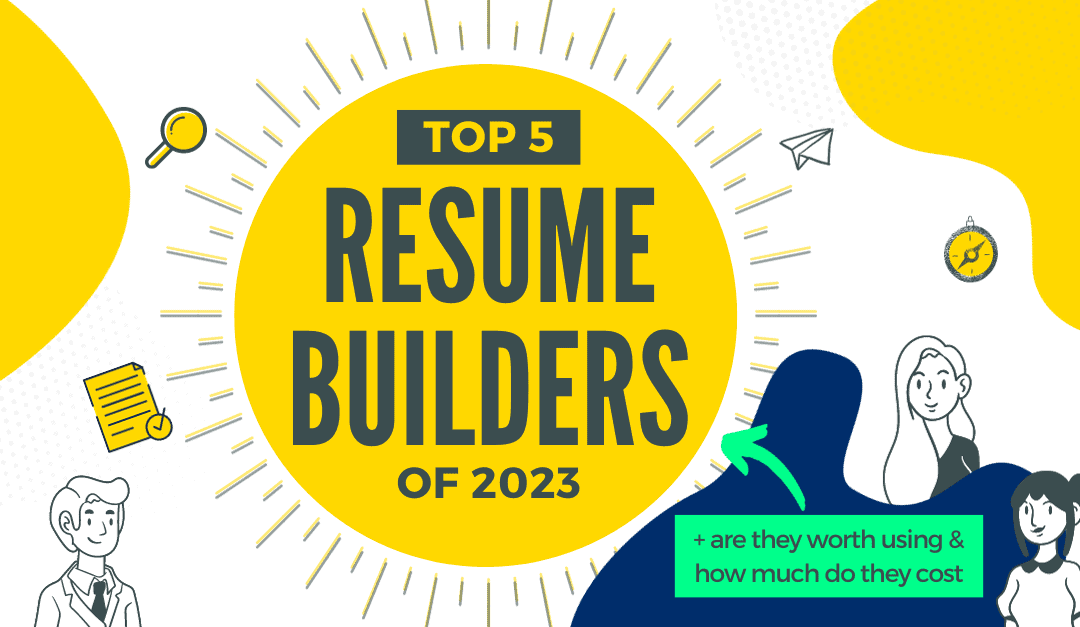
Are you the right peg in the wrong hole? A bit of career advice
All too often we find ourselves struggling with life choices because we think about what we want, rather than what we objectively need.
We either feel satisfied with a job, we hate our job, or we love our job, but we usually don’t know why we feel this way.
However, there is one thing, above all else, that can help us navigate every career decision we make.
Chip Conley finally found this one thing at age 48, when he died 9 times. But first a cliff hanger…
- - - - -
How to evaluate your career
Chip Conley is without a doubt the master when it comes to optimizing the quality of a company. As Head of Hospitality at AirBnB, he more than doubled the company’s quality scores in less than two years.
The interesting thing is that he applied that same methodology to improving the quality of his own career.
As an avid student of Maslow’s hierarchy of needs, Chip breaks nearly everything down into a pyramid of needs. Here is what his pyramid of needs looks like for employees:

Using the pyramid above, you can evaluate the progress of your career very simply.
At the most basic level you’re looking for enough money to satisfy your physiological and safety needs. Once those are met you move onto satisfying your higher needs like esteem and belonging.
Here‘s how it looks like alongside Maslow’s pyramid:

Where people get into trouble is when they try to use money to satisfy all of their needs.
Money is the most basic and easiest thing to obtain, so it’s very natural that we’d want to use it to measure our success. I was definitely guilty of this myself and spent months banging my head against the wall wondering what I was doing wrong.
Why wasn’t I feeling satisfied? Was I just being too greedy or ungrateful?
What I didn’t understand at the time was that even though I was satisfied with my work because I received plenty of money for it, the true source of my struggle was with recognition and meaning.
The right peg in the wrong hole
After learning about this pyramid, I started noticing the career problems of my friends differently too. I divided these problems into two types that seemed to keep coming up again and again:
1. “The miserable investment banker”: is someone who ignores searching for recognition or meaning and just concentrates on increasing the money they receive. This is a consequence of thinking money=recognition
2. “The right peg in the wrong hole”: is someone who is highly qualified and does their job well, but fails to get recognition because they’re at a company that doesn’t value their particular skillset. This is a consequence of thinking hard work=recognition
In order to move up the career pyramid it’s important to realize the limitations of both yourself and your employer.
For the “investment banker,” the problem is that he has falsely equated money to recognition. He thinks that if he makes more money he will get the recognition of his boss, his friends, his kids or his girlfriend.
What he fails to realize is that people evaluate you on far more data points than simply money. He has oversimplified life to one metric when in fact the way to get ahead in work and love is usually right in front of us, but that’s another story.
I also see a whole lot of the “right pegs in wrong holes.” These are good, smart people working in places that don’t care for their talents.
👉 It’s important to understand that the fault here isn’t always on the employer.
Yes, it’s true that some employers are bad at giving feedback and praise, but in a lot of cases the employer may be perfectly happy with your performance and still not reward you. This is called…
The Extra Credit problem
I once had a smart friend who worked at a big department store as an assistant manager. He was very talented and wanted to take initiative to show what he could do.
He decided that he would fix the store’s broken inventory system by devising a super well thought-out inventory map of how to most efficiently get the clothes from the fitting rooms back to the store shelves.
He presented his map to the boss who thanked him for it, said she was impressed, and proceeded to file it into the recycling bin. It wasn’t that my friend’s idea was bad, it was brilliant in fact.
👉 The problem was that he hadn’t been hired to do that type of work.
In truth he was mostly hired to be yelled at by customers and give them free gift cards to appease them.
A lot of top performers suffer from this.
In school we are taught that if we want to be the absolute best we need to do the extra credit work. But while we usually get rewarded in school for this extra credit work, it’s very rare that this happens in the workplace.
I hate to use this cliche, but it really is location, location, location. It doesn’t matter if you build a gorgeous house in a shitty location, much like it doesn’t matter if you’re a top performer at a shitty company. Either way you won’t be living up to your full potential.
👉 Where you work informs how well you work 👈

The Common Trend
In both of these cases the employees are seeking recognition without necessarily knowing it. They feel somewhat satisfied with their jobs but they know they want more.
If you want more, it isn’t because you’re being greedy or ungrateful, it’s because it’s the natural next step in your career pyramid.
I’ve found that once you realize that you’re really seeking recognition it becomes much easier to obtain it. You start thinking about your work differently and doing things because you want to make an impact rather than a dollar.
The trick to making that impact is to put yourself in the right location, and then to deliver on the needs of the company rather than your own personal needs.
Chip’s Final Pyramid

Chip’s final pyramid on advancing your life is about moving from a job, to a career, to a calling.
He explains that Jobs are very common and very easy to get, but they hold our satisfaction briefly. Most of us search for a Career and once we find it we’re pretty satisfied for a long time.
It’s only later in life that we realize what we really need is a Calling. A Calling is very, very difficult to discover but it will take you the furthest.
👉 What the most successful players in the world own is a Calling.
They know why they exist and this gives them the seemingly superhuman amounts of energy to push through any barriers and obstacles that may try to block their path.
Chip found his calling at age 48 when he died while giving a speech on stage. Here’s an excerpt from James Altucher describing Chip’s experience:
“He died. He was giving a speech, sat down, and the next thing…he was dead. They called an ambulance. They got paramedics. They did that thing. They brought him back to life. But his body didn’t like living.
He died again. Eight more times they used machines to convince the machine in his body that we call a heart, to come back to life. Please come back to life, the machines said to his heart. And finally his heart decided to stay.
After that, things changed. Like they often do when we die at the age of 48.”
If want to read the full story about Chip’s incredible experience I think that James does a great job of telling it so I’ll include it here.
If you find yourself in that stage where you feel you’ve found your career but are still searching for your calling, here are a couple ways Chip recommends you begin searching for it.

How to look for your calling
1. Look to your youth
What did you do when you were younger where you lost track of time. For Chip, he remembers he would cook and serve dinner for his family every weekend by making a restaurant in their living room. He loved taking care of people. He now realizes that his journey as a hotelier and at AirBnB is really all about taking care of people.
2. Look for your habitat
Try to notice the places you find a natural sense of creativity as an adult. For Chip this was anywhere near water, so the beach, the shower, the bath. Make an effort to spend more time in these places and it will supercharge your journey forward far quicker than simply thinking about it.
-----
Make no mistake about it, finding your calling is very difficult and not something you can do over a weekend. But that’s the magic of it. You never know when that calling will hit you, but you can be certain it will feel amazing.
It could happen at age 28 or 48.
For professional athletes it happens very early, for Chip it happened at age 26 and again at 48.
👉 You can have more than one calling. You can change your calling.
The important thing is to listen for it and not ignore it when it whispers in your ear.
If you want to dive deeper into Chip’s pyramid thinking I recommend picking up his book Peak: How great companies get their mojo from Maslow
Or you can start with his TED talk below:
A Share is Worth A Thousand Thank You's
As always, I hope that this has been helpful to some of you out there. If it has, the most helpful thing you can do is share this article so that others can find it too 🙏
Read more career, resume, LinkedIn, and interview best practices on The GHYC Blog.
Get 1-on-1 Help
Need to land your job ASAP? Fast forward your job search with some 1-on-1 help! 👇
More from the blog:

Best Resume Builders of 2023 (Pros & Cons + Prices)
Modern resume builders use AI, ATS-friendly templates, and active recommendations to help you build your perfect resume faster than ever before. In this post we’ve rounded up the 5 best resume builders of 2023.
How to Beat the ATS in 25 Minutes | The Ultimate Guide
In this guide I’ll show you how to beat the ats (applicant tracking system), plus I’ll give you 2 ATS-friendly resume templates and a free tool to test if your resume is ATS-friendly.
Like this? Try our free courses!
Tired of sending your job applications into a black hole and never hearing back? Get hired faster with our guided courses all for FREE!
Bogdan Zlatkov is the Founder of GHYC and author of "The Ultimate Guide to Job Hunting", ranked #1 on Google. He has been featured in the Wall Street Journal, Fast Company, HR Dive, and more. At GHYC, Bogdan creates job search courses & tools by working with award-winning career coaches, best-selling authors, and Forbes-Council members. Prior to GHYC, Bogdan led the content programs at LinkedIn Learning.